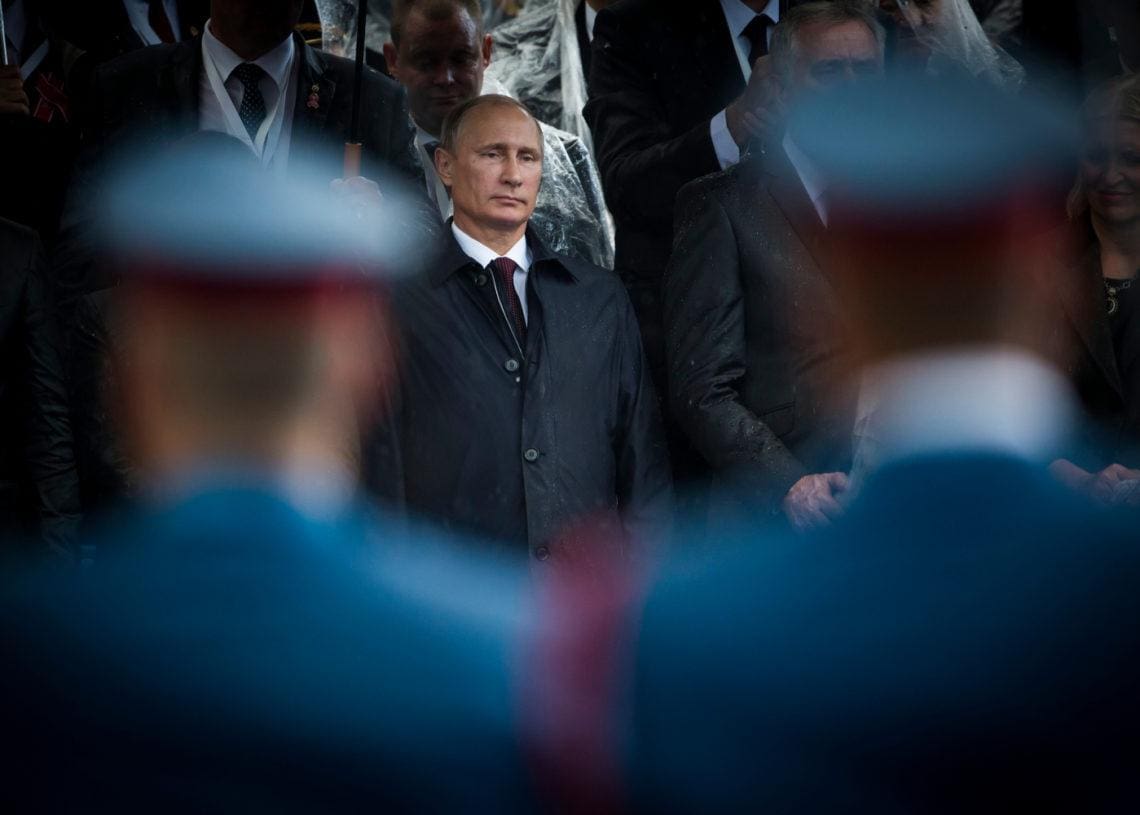Russia’s invasion of Ukraine may be largely motivated by the drive to expand corrupt practices, writes Columbia University adjunct professor Matthew Murray. To understand the situation, we need to look back to Ukraine’s 2013-14 Euromaidan movement. The demonstrations saw Ukrainians protest the government of former President Viktor Yanukovych and his refusal to sign legislation that would lead to EU membership.
When President Putin began Russia’s expanded military invasion of Ukraine on February 24, the imprisoned Russian anticorruption activist and political opposition leader Alexey Navalny was on trial once again over fabricated charges of embezzlement. Though Mr. Navalny faces another 15 years in a penal colony, he seized the opportunity during his February 24 hearing to publicly state his opposition to Russia’s war on Ukraine. “This war between Russia and Ukraine was unleashed to cover up the theft from Russian citizens and divert their attention from problems that exist inside the country,” he said.
Mr. Navalny’s statement reflects a deep understanding of the causes of war. Throughout history rulers have started wars to divert and distract attention of their citizens from growing domestic problems and restiveness. And this pattern fits the Russian situation well. In recent years, Putin’s popularity has declined due to failure to modernize Russia’s economy, his flawed management of the Covid-19 pandemic, and—not least—the corruption of his regime and his inner circle. Indeed, last February, when Russian courts initially sentenced Navalny to over two years in prison, tens of thousands of Russian citizens from 109 cities across the country went to the streets to demonstrate against Putin’s rule. In ordering the invasion of Ukraine, Putin may well have been seeking to divert attention from failures at home, including his autocratic control of the political economy for the benefit of himself and the Russian oligarchy.
Legitimizing Corrupt Practices
But it’s more than that: Putin’s aggression may also be aimed at legitimizing his rule at home by installing a new state-sponsored oligarchy in Ukraine. He may be seeking to kill the idea, which took hold in Ukraine during the 2014 Revolution of Dignity at the Maidan. The Maidan Revolution started when Ukrainians took to the streets of the Maidan in central Kyiv to protest then-President Victor Yanukovych’s sudden decision to reverse the nation’s course to join the European Union and engage in free trade with the world’s largest economic bloc. But the Maidan Revolution was not just about one decision or one administration. The Maidan uprising was a revolution against the system of corrupt rule of Yanukovych and the oligarch class that was choking the nation’s potential—and it was also about the idea: the idea that every individual should have the freedom, the right, and the path to fulfill their human potential. This idea fundamentally threatens Putin’s personal authority and autocratic rule. As Ukraine’s reformers have begun to take concrete steps to embed this idea in independent institutions, they set an example for Russian citizens, who may be inspired by Ukraine’s example to demand that their government suppress official corruption and respect for human rights.
When the Maidan Revolution succeeded in forcing Yanukovych to flee Ukraine to Russia, the Kremlin reacted militarily by annexing Crimea and occupying the Donbas region in eastern Ukraine. But this did not stop the Revolution of Dignity. Though halting and painstaking, Ukraine has begun to dismantle oligarchic structures and replace them with independent institutions intended to hold government officials accountable. Ukraine is increasingly shaped and strengthened by a new economy that is driven by a dynamic private sector and based on a rule of law. The country also boasts a vibrant and active civil society and a vigorous free press, which work tirelessly to hold the government and public officials accountable. In short, Ukraine was developing, however haltingly and imperfectly, into a functioning Slavic sovereign democracy, right on Russia’s border.
A Threat to the Nature of Autocratic Rule
In response, Moscow has sought to discredit the legitimacy of Ukraine’s post-Maidan governments and subvert democratic institutions and processes. It has exerted a malign influence through local oligarchs who use control of the energy, banking, and media industries to interfere with elections and institutions such as courts, prosecutors and the central bank. But while these efforts have sometimes slowed Ukraine’s progress, they have not stopped it. The current war is an extension, and drastic escalation, of the Putin regime’s campaign against post-Maidan Ukraine, with Putin declaring that the current leadership in Kyiv is illegitimate. Putin and his mouthpieces cite the democratic change in Ukraine’s leadership which followed the Maidan as a criminal act. Though unstated, it seems that Putin wants to replace the current leadership with a new state-sponsored oligarchy with local proxies under his personal control.
In short, understanding the Maidan Revolution, and the political threat it poses to Putin’s regime, is crucial to understanding Putin’s rationale for starting the war. Of course, it is important not to oversimplify Putin’s motivations and objectives in Ukraine. We should not overstate the role of corruption in Putin’s foreign policy, both because his motivations are complex, and because overstating the significance of one factor can undermine Western planning of optimal strategy and tactics to help end this war as soon as possible. Yet we should not overlook this factor either. As Mr. Navalny has warned, Putin’s war on Ukraine is a continuation of his war on Russian citizens and will further weaken their capacity to defend their human rights. Putin is invading a sovereign nation of Russia’s Slavic brothers and sisters in part to assure that he can continue to exercise autocratic control over his citizens at home—and so that he, his inner circle, and their cronies can continue to enrich themselves at the expense of the Russian people, without the political and cultural threat that a successful post-Maidan Ukraine would pose.
This article first appeared on Professor Matthew Stephenson’s Global Anti-Corruption Blog. It is reprinted here with permission.














